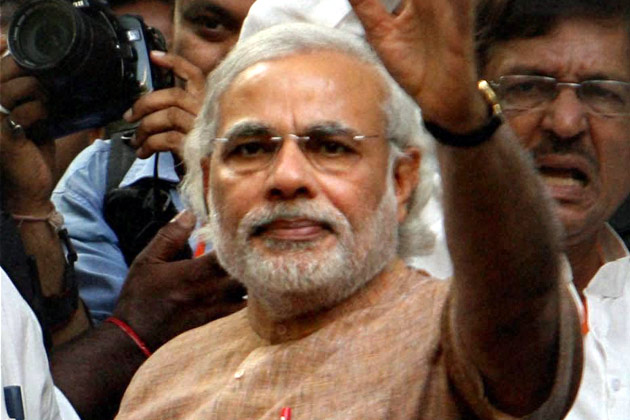
Vadodara, June 13: The Gujarat government has recruited 26,000 persons into the police force in various cadres and also provided over 2.5 lakh jobs in the last seven years.
In all, three lakh people were employed in different Government jobs since 2005 and the entire recruitment process was "transparent", Chief Minister Narendra Modi said on Tuesday.
"Earlier, there used to be a lot of complaints about police recruitment, but things have changed now. These 26,000 persons, including those from poor families, were recruited in a transparent manner," he said in Vadodara.
Modi was speaking at the passing-out parade of Lok Rakshak Police personnel at the Police Training School in Vadodara.
"Gujarat Police is the most educated and tech-savvy force in the country today. It is mandatory to learn computer for every one joining the police force," the CM added.
Training modules are being overhauled for all cadres at the police training institutes in the state to make the force more professional, Modi maintained.
Modi took salute at the parade of 419 trainees, including women. Of these trainees, 41 are post-graduates while 169 are graduates.
He said a large number of women are joining the police force which is a welcome development.
On the occasion, Modi presented President's police medals to 30 personnel, including DGP Chitranjan Singh.
After Tuesday's induction, a total of 892 Lok Rakshak jawans have joined Gujarat Police in the last two days.




Comments
Add new comment